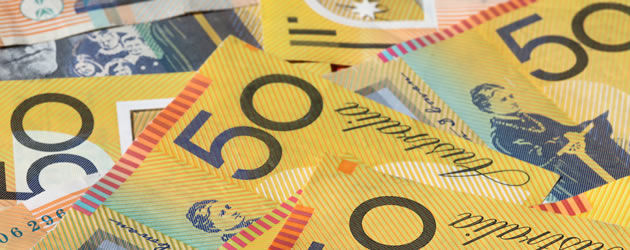Euro (EUR) Exchange Rate Forecast to Tick Lower against the ‘Aussie’ (AUD) despite Stunted Australian Building Approvals
The Euro to Australian Dollar (EUR/AUD) exchange rate softened by around -0.2% on Thursday afternoon.
German labour market data produced disappointing results on Thursday which provoked shared currency depreciation. July’s German Unemployment Change saw 9,000 newly unemployed compared with market expectations of a drop in unemployment of-5,000. In addition, the seasonally-adjusted German Unemployment Rate held at 6.4% in July. The Euro downtrend was somewhat sluggish, however, as many analysts still feel the German labour market is on course for improvement. ‘Even if there is a slowdown, probably the recovery in the labour market would not stop,’ said Andreas Rees, UniCredit Bank AG’s chief economist on Germany. ‘The upward trend in the German economy is intact.’
Also weighing on demand for the single currency is Greek Prime Minister Alexis Tsipras’ struggles to maintain the support of his party members. Tsipras has been forced to threaten a snap election which could see a long period of political uncertainty; something that the Hellenic nation cannot afford with financial institutions on critical life-support. German inflation data also printed poorly which aided the single currency slide later during Thursday’s European session. The slowdown in German inflation has been linked to cheap energy prices as commodities prices continue to drop.
The Euro to Australian Dollar (EUR/AUD) exchange rate is currently trending in the region of 1.5027.
Australian Dollar (AUD) Exchange Rate Forecast to recover Some Losses against the Single Currency (EUR) on Bullish Iron Ore
During the Australasian session, the ‘Aussie’ slumped versus its currency rivals. This was mainly due to a shock result from Australian Building Approvals data. Having been forecast to increase by 19.5%, June’s annual Building Approvals only managed an 8.6% increase. On a monthly basis, June’s Building Approvals declined by -8.2%. This will be a difficult pill for the Reserve Bank of Australia (RBA) to swallow. With the Sydney housing boom pricing people out of the market, the lack of new buildings is threatening to inflate the bubble to an uncontrollable state. This could possibly see the central bank consider intervention, although easing policy has a chance of stoking the housing crisis as well.
The Australian Dollar recovered previous losses against many of its peers during Thursday’s European session, however, thanks to the third successive day of rising iron ore prices. ‘Speculation steel mills are purchasing iron ore at ports has supported futures and physical markets,’ said Huang Huiwen, a Shanghai-based analyst at Shanghai Cifco Futures Co. However, some see the uptrend as temporary; ‘The rebound will be short-term and lower prices are expected, we still have an oversupply market,’ stated Kelly Teoh of Clarkson in Singapore. ‘It seemed there’s still some tightness in the physical spot cargoes.’
The Euro to Australian Dollar (EUR/AUD) exchange rate has fallen to a low of 1.4978 during Thursday’s European session.
Euro to Australian Dollar (EUR/AUD) Exchange Rate Forecast to Hold Losses ahead of German Inflation Data
With significant German inflation data due for publication later on Thursday afternoon, the Euro to Australian Dollar (EUR/AUD) exchange rate is likely to hold steady ahead of the results. US Gross Domestic Product data will also have an impact on the EUR/AUD exchange rate. If the US growth data prints positively it will stoke speculation of a near-term Federal Reserve rate hike which will cause the ‘Aussie’ to soften.
Friday is likely to see significant EUR/AUD volatility with several domestic data publications due for release. Australian Private Sector Credit and Eurozone inflation data will have the greatest impact on EUR/AUD movement.
The Euro to Australian Dollar (EUR/AUD) exchange rate reached a high of 1.5088 during Thursday’s European session.



